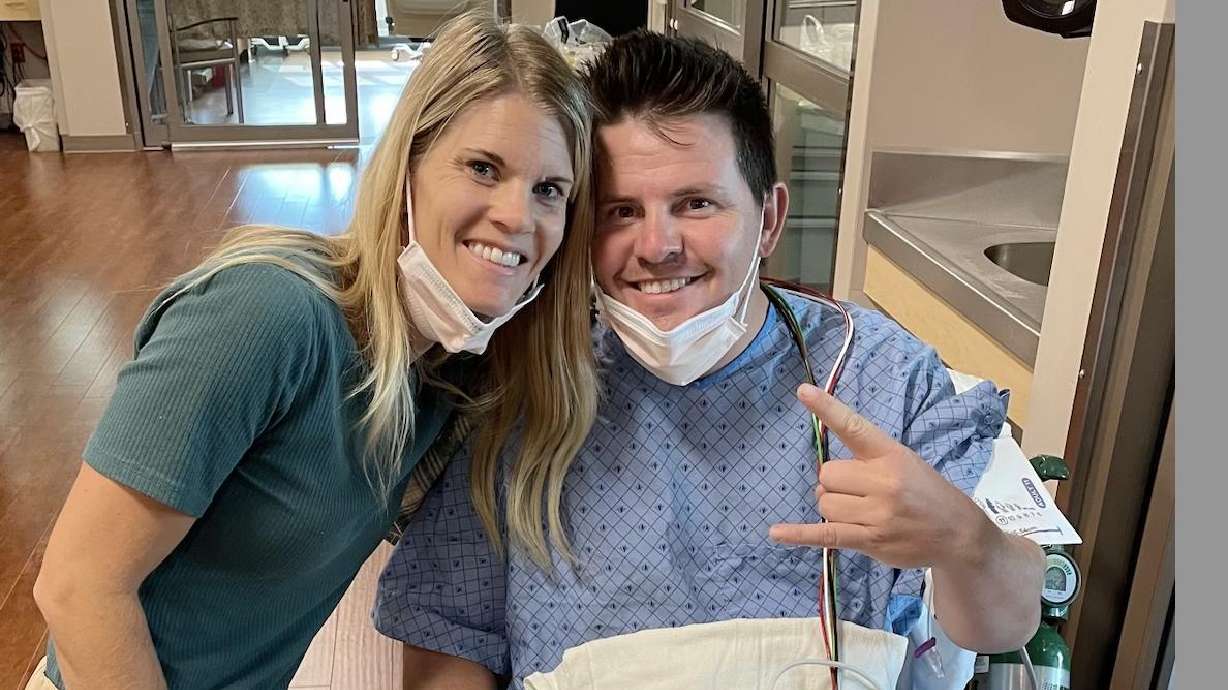HEALTH
U of U researching new and old meds for possible coronavirus treatment
Apr 30, 2020, 10:59 AM

(Hydroxychloroquine tablets in a blister pack. Credit: Buda Mendes, Getty Images)
(Hydroxychloroquine tablets in a blister pack. Credit: Buda Mendes, Getty Images)
SALT LAKE CITY – As the number of COVID-19 patients continues to climb across the country, some doctors say people are desperate to find any kind of coronavirus treatment. Researchers at the University of Utah are trying to find ways to tackle the virus, and one of them involves a new kind of drug.
Convalescent plasma. Antibody testing. Scientists all over the nation looking down many different avenues to find a way to prevent the spread of SARSCoV-2. Researchers at the U have come across a relatively new way to treat viruses, in general, involving something that’s already in the body.
They’re called peptides, and they’re chains of amino acids that naturally form in humans. Insulin is an example of this. However, Biochemistry Professor Dr. Michael Kay says they’re making artificial peptides called d-peptides.
“These are peptides that are the mirror images of natural peptides,” he said.
The best analogy we could think of
Think of Mission Impossible, and how the good guys disguise themselves to trick the bad guys to do what they want. In a way, d-peptides work like that. Viruses see these things like regular peptides, but, the epithelial cells in the body don’t recognize them at all.
Kay says, “The body doesn’t know what to do with them. It’s not able to digest them. It’s not able to reject them through the immune system. They’re, essentially, stealth agents that are able to roam the body undetected.”
University researchers have been making d-peptides to target HIV, and the results have been quite good. Eventually, they should be able to custom make a d-peptide to go after coronavirus.
“If it has a d-peptide bound on its surface, it is unable to fuse with the human cell and it just stays outside. So, infection never even starts,” Kay says.
Plus, Kay says with what they’ve learned from their HIV studies, they should be able to speed up the drug making process for other viruses. So, how soon can they make it for COVID-19?
He says, “The absolute fastest it could be, if everything went perfectly, is probably two to three years.”
So, it’s a ways off.
Coronavirus treatment options
Doctors say that’s why there is so much research across the country about existing drugs and how they impact COVID-19. Just yesterday, Doctor Anthony Fauci reported the drug remdesivir showed fantastic results, but, that doesn’t mean that research into drugs like hydroxychloroquine has stopped.
General internist, Dr. Rachel Hess, says, “The majority of the hydroxychloroquine data that we’ve seen has been in the inpatient setting. So, it’s trying to take people who are already quite sick with COVID-19 and asking, ‘Can hydroxycholorquine make them better?’”
Hess says that’s a lot of pressure to put on one drug, especially since there are underlying health factors that could play a role in someone’s illness.
“We are looking at hydroxychloroquine vs. placebo in people over the age of 18. [We’re] enrolling about 400 people,” she says.
She also says there is a lot of conflicting news about hydroxychloroquine. Hess confirms the data is not promising when it’s used on hospital patients. However, her study asks what would happen if they use it before the person is seriously ill.
“From the preliminary data, if hydroxychloroquine is going to be helpful, we think it’s going to be helpful earlier in the disease course,” she says.
For now, she says it’s far too early to predict what will happen in their double-blind study.
RELATED LINKS
Drug shows promise in speeding recovery from COVID-19
State of Utah receives refund of the $800 thousand purchase of hydoxychloroquine
4 ways to promote better mental health during the COVID-19 pandemic
How To Prevent the Spread of COVID-19 Coronavirus
COVID-19 coronavirus spreads person to person. It is a virus that is similar to the common cold and the flu. So, to prevent it from spreading:
- Wash hands frequently and thoroughly, with soap and water, for at least 20 seconds.
- Don’t touch your face.
- Keep children and those with compromised immune systems away from someone who is coughing or sneezing (in this instance, at least six feet)
- If there is an outbreak near you, practice social distancing (stay at home, instead of going to the movies, sports events, or other activities.)
- Get a flu shot.
Local resources
Utah’s Coronavirus Information
The Church of Jesus Christ of Latter-day Saints
Utah Coronavirus Information Line – 1-800-456-7707
National Resources
Centers for Disease Control and Prevention












